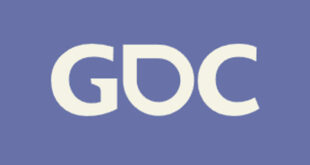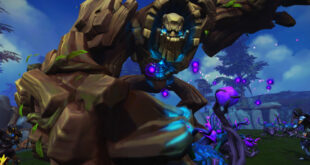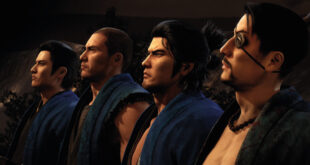This year marks the 30th edition of GDC. How are you celebrating? What’s new/special this year?
We’re celebrating our 30th by replacing our popular Flash Forward opening session with a special Flash Backward: 30 Years of Making Games. It’s going to be a series of micro talks focusing on significant trends over the last 30 years of our industry. We’ll open with our (Computer) Game Developers Conference founder, Chris Crawford talking about making games in the late ’80s, and work our way through to Palmer Luckey, discussing the rise and future of virtual reality. I think it’s important to pause to honor where we came from as well as take a look at where we might be going. It’s will be an all-star cast of game industry’s finest and a real can’t-miss session.
Countless development conferences have sprung up around the world and throughout the year – yet GDC remains the biggest. What’s the secret to the show’s success?
I genuinely feel it’s because we have consistently maintained our ‘by developers, for developers’ philosophy. All of our session content, whether it’s in the main conference or one of the summits, is 100 per cent vetted by various sets of working game developers. They review session submissions; they determine session invitations; they personally mentor speakers; they do it all. Each advisor for GDC has one goal and that is to provide the best possible content for attendees and we simply stay out of their way.
How did the show first begin? Where did the inspiration come from?
I think to answer that question you’d have to speak to our founder, Chris Crawford. He started this event in his living room in 1988 (then called the Computer Game Developers Conference) and it was so popular he held a second one the same year but upgraded to a Holiday Inn with five times the attendance. I imagine at the time it served the same purpose as it does now: to be a place where game developers could learn and share from each other.
Who have been your favourite speakers and keynotes over the years?
My first GDC was in 2000 but my fondest moment with a keynote speaker was with Mr Satoru Iwata. I had to introduce his keynote and I was intensely nervous. We were both backstage pacing and practicing our speeches, his of course much more complicated than mine. He approached me, noticing my nerves and I asked if he ever got used to it. He said it’s never the same experience for him but at least I get to speak in my native tongue! He was so gracious, kind and actually quite funny. It’s a moment I will never forget.
Any other fond memories from the past 30 conferences?
One experience I’ll never forget was when Mega64 created their first GDC videos for the awards ceremony. They wanted to shoot a video with Shigeru Miyamoto and I had yet to get approval from Nintendo an hour before the video needed to be shot. We finally approached (cornered) Nintendo after Miyamoto’s keynote rehearsal and asked if he’d participate. They asked him right then and there; he smiled, said yes and they went outside and shot a hilarious video that ended up launching a series of Mega64 skits starring game developer legends at GDC.
Another experience I wish we could repeat was sneaking a Will Wright talk into the last session slot on a Friday under a pseudonym. The room was full and yet no one knew who the speaker would be. Chris Hecker set up all the slides, while Will sat in the audience until it was time to start. A perfect you-had-to-be there moment.
What would you say have been the biggest changes to the industry throughout the last 30 years?
It’s funny that you ask that. When preparing the Flash Backward, I looked at event programs from the earlier years to discover what they were talking about in the early nineties, for example. It turns out… it’s a lot of the same topics: storytelling, discovery, community management, even virtual reality.
I think the one major shift is how the industry now looks at its role in culture and society. Games are everywhere and it’s important to act responsibly and thoughtfully.
What big changes do you see on the horizon?
This industry moves so fast and the impact of virtual reality can’t be dismissed. I think games will remain a driving force in pushing this medium forward and advancing the pace of the technology and content. There are still so many problems to solve but give game developers a challenge and that’s when they thrive.
How will you keep GDC going for another 30 year?
Very carefully! But really, I see it as a matter of community. GDC’s role is to continue to provide a safe, inclusive space for the game development community to gather each year to learn, network and inspire. If we keep a laser focus on that, we will easily make it another 30 years… and then some.

 MCV/DEVELOP News, events, research and jobs from the games industry
MCV/DEVELOP News, events, research and jobs from the games industry


